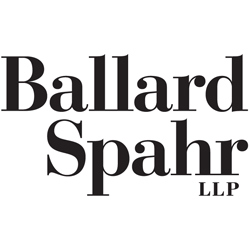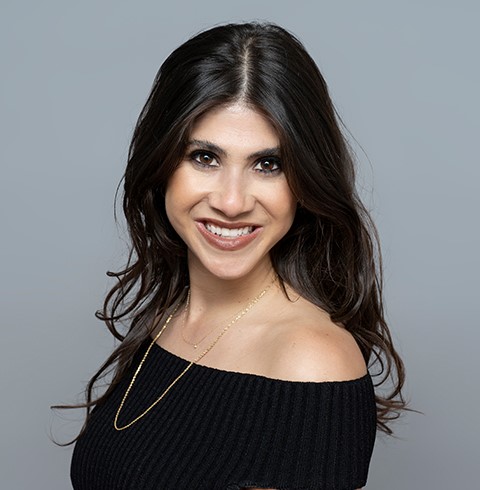Seed rounds or friends and family rounds often are completed using SAFEs or convertible notes. The benefit of these instruments is that both the founders and the early stage investors can “kick the can” down the road in terms of setting a valuation for the startup. Unlike a preferred stock financing (sometimes called a “priced round”), SAFEs and convertible notes do not require the parties to put a specific valuation on the startup — even if there is a “valuation cap.” (See more about SAFEs and convertible notes in our earlier article here.)
Over the last decade, the size of a typical seed round has grown significantly. In 2014, the average seed round was under $1 million, per Crunchbase. Today, the average seed round currently exceeds $3.5 million. Although seed stage funding can come from a variety of sources, venture capitalists invested more than $14 billion in seed funding last year, according to EY’s figures. As of mid-2023, that figure has reached almost $5 billion.
Though a lot of capital is flowing in to early stage ventures, early-stage investors are often reluctant to be the first to put a valuation on a startup venture. There are several reasons valuations are hard to pinpoint at the earliest stage of a business, but in addition to the difficulty of setting a valuation for an early-stage venture, early-stage investors probably don’t want to haggle with founders over a nascent company’s valuation.
But not all investors think SAFEs and convertible notes are best for founders. Investors from one venture capital firm, California-based Inspiration Ventures, told us they prefer priced rounds, even at a seed round. Unlike other venture capitalists and angel investors, they said, they don’t mind hashing out a valuation with founders even at the most nascent stages of growing a business.
The below Q&A explores the investing philosophy of Gady Nemirovsky and Robert Fanini, cofounders of Inspiration Ventures, whose unwritten slogan is: “the most successful VC you never heard of.” Keep reading for nuggets of wisdom that may help you shape your next pitch.
###
Ballard Spahr: Who are the founders of Inspiration Ventures?
Robert Fanini: Gady Nemirovsky and I, Robert Fanini, were serial entrepreneurs for over 20 years prior to starting Inspiration Ventures. Between the two of us, we oversaw the growth of over 10 companies, most from initial business idea to exit, and successfully raised approximately $100 million in venture capital for various startups. Our practical experience as operators imparted us with a unique understanding of what it takes to grow a company from idea to exit. Moreover, we built on the lessons we learned as startup founders to create a unique investment process that enhances collaboration between investors and entrepreneurs — the type of help and interaction we would have valued most highly when we were leading our own startups. These firsthand experiences have proven to be invaluable to Inspiration’s success and are its biggest differentiator from other seed funds.
What is Inspiration Ventures’ investment thesis?
At Inspiration Ventures, our investment thesis is to assess startups by two main variables:
- Whether the product or service addresses a large and growing market, and
- Whether the experience and character of the founding team meets the criteria necessary to grow a new business; whether the founding team has the passion, vision, and adaptability to change when the market and customers dictate doing so.
What stage do you invest at and why?
Inspiration Ventures focuses primarily on seed stage investments. Early stage ventures are best positioned to benefit from Inspiration’s investment process, mentoring, and experience. Our goal is to purchase between 10% and 25% of the fully diluted shares following initial investment. While risky, getting in early allows us to own significant equity, even following subsequent funding rounds. Moreover, owning significant equity after the seed round provides the Inspiration Ventures’ funds with the opportunity to liquidate a portion of their equity during follow-on rounds. This way limited partners get faster liquidity while still preserving investment upside.
What industries do you focus on, if any?
We generally focus on what we know best: technology companies that don’t require a lot of capital in order to get through proof of product and a demonstration of product-market fit. This category of companies typically includes SaaS businesses within internet-based services, network security, and AI/machine learning technologies. However, we are undeniably opportunistic and will consider investments in other industries as the situation warrants.
How do you find your portfolio companies?
After evaluating dozens of startups over the last 16 years, Inspiration has established a network of contacts. Entrepreneurs we have worked with, even those that we have met with but chose not to invest in, provide the best leads for new startup opportunities through introductions to founders and entrepreneurs that they know and recommend. We also source potential deals from other venture firms that we’ve worked with, and keep a keen eye out while attending a variety of accelerator demo day presentations.
Do you consider yourself a “passive” investor? If not, why not?
Unlike most other venture firms, Inspiration is an active investor with most of our portfolio companies. We typically take an active role in helping founders make decisions that provide the most efficient path to demonstrating product-market fit. We believe a large part of our differentiated value is providing ongoing business mentoring to portfolio management teams based on our experience as entrepreneurs. We often will position advice based on asking, “What would we do if we were running the business?” This has proven to help add an element of experience that helps when confronted with challenging business decisions and situations.
What is always in your term sheets?
We always make sure that there is an adequate option pool allocated before we make an investment. This varies depending on the size of the company and the number of founders involved.
What is never in your term sheets that you see other investors request?
We never ask for a multiple on liquidation preferences. Because we typically have a meaningful equity position following early seed stage investments, unlike other venture firms, this tends to better align Inspiration’s interests with those of the founders. For instance, we typically will help manage the business to maximize follow on investment values rather than participate pro-rata following investments at lower values. The dynamic of investing early allows Inspiration to take a position as an extension of the management team instead of the typical judgmental board member investor. We encourage founders to share their ongoing business challenges, problems, and biggest concerns so that we can try to apply our experience to help. This creates a strong investor-founder working relationship based on trust — an important element to success.
Why do you disfavor SAFEs or convertible notes?
SAFEs do not provide any of the protections that convertible equity does: no liquidation preference, no maturity date or time to convert into equity, no collateral and/or guarantee that investments will be returned. Although they allow founders to raise capital relatively quickly, SAFEs tend to “kick the can down the road” with regard to valuing the business. In most cases, this causes the company to flounder with regard to future rounds if initial objectives after not achieved. Most importantly, SAFEs, due to their temporary ad hoc nature, often give the enterprise the feeling of being a “lab experiment” – meaning that if the business doesn’t take off quickly then founders bail out. Of course, there are rare companies that have it all figured out right away. The most important quality we look for in founders is commitment and perseverance, something we call “failure is not an option DNA.”
What is your holding period for a company?
The holding period for seed stage investments typically spans four to 10 years.
What do you consider success?
Success is calculated by a variety of factors:
- Return on investment of at least 3x within five years,
- Positive outcomes for founders and investors, and
- Knowing that we’ve had a role in the company’s ultimate success through our involvement and mentoring.
What do you consider failure?
We typically think of failure as those investments that fail to return capital and/or where the founders don’t get a return on their time and investment.
Have you worked with founders even after you passed on investing in the company?
Yes. In fact, we offer to help many founders that we meet regardless of whether we invest. Usually, this amounts to providing feedback on financing terms if/when received from another firm. We also often provide help or advice on business-related issues. Although we enjoy helping generally, maintaining these relationships has the added benefit of strategically promoting continued deal flow.
What was “the company” that got away — in terms of companies in which you passed on an investment?
We passed on making a seed investment into a business called JustinTV (live internet broadcasting of Justin’s day-to-day life 24/7). The business found that users enjoyed observing gaming content and went on to create Twitch which was purchased by Amazon five years later for $1 billion. [Editor’s note: The company was rebranded to Twitch Interactive in 2014.]
Do you think the startup industry is in a slump? If yes, why, and, if not, why not?
No, we don’t believe the startup industry is in a slump. Despite the fact that valuation expectations have decreased with the general downturn of the economy and IPO market, we believe that the startup industry is strong and thriving, particularly given the many new opportunities created by efficiency improvements through the deployment of AI, machine learning, ChatGPT, and large language model platforms.
Is there anything that I failed to ask that you think would be pertinent in terms of understanding your perspective on the startup industry circa 2023?
We have learned through the years that the key to investing at a very early stage is to pay particular attention to the qualifications of the founding team. Since the tech market changes so rapidly, initial business ideas commonly pivot more than once before finding a “breakout” business strategy. This industry characteristic requires that the founding team be flexible and open to changes when warranted by the market/customers, while also maintaining the tenacity and perseverance required to get the initial product to market. Based on our experience, looking for and validating these personality characteristics in founders is crucial to ultimate business success.
_
Kim’s Korner is a series of articles by Ballard Spahr’s emerging company and venture capital attorneys. The column is not legal advice. The substance of the column is derived from our experience working with founders and details many of the current critical issues facing startups.
Learn more about Ballard Spahr

This is a sponsored guest post by Ballard Spahr. Ballard Spahr is a Technical.ly Ecosystem Builder client.
Before you go...
Please consider supporting Technical.ly to keep our independent journalism strong. Unlike most business-focused media outlets, we don’t have a paywall. Instead, we count on your personal and organizational support.
Join our growing Slack community
Join 5,000 tech professionals and entrepreneurs in our community Slack today!

The person charged in the UnitedHealthcare CEO shooting had a ton of tech connections

Delaware students take a field trip to China using their tablets and ChatGPT

Northern Virginia defense contractor acquires aerospace startup in $4B deal



